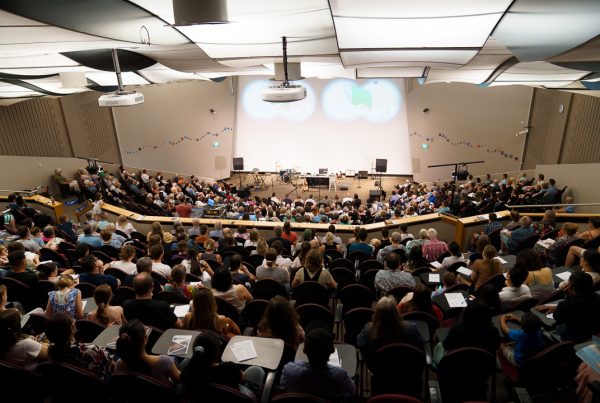19 March 2020
Recently I received an anonymous Connection Card on Sunday suggesting we should have a spoken acknowledgement of country at the start of every church service.
For some years, St Michael’s has had the following “acknowledgement of country” printed weekly in our church bulletin, alongside a historical note about the Christian ministry here in Wollongong.
Anglican Ministry has been occurring in Wollongong since the 1820s. Our site was established largely through the support of Charles Throsby Smith, Wollongong’s first European settler. We acknowledge that the land on which we meet as Christians was traditionally in the custodianship of the Wadi Wadi people of the Dharawal nation. (See Acts 17:26)
The reference to Scripture reminds us God is sovereign over which peoples lived in what places!
We also place this same acknowledgement of country on the ‘St Michael’s History‘ page of our website. There we note that, “In March 2013, the AGM of St Michael’s unanimously agreed to adopt this ‘acknowledgement of country’. This followed advice from local indigenous leaders, and guidance of Reconciliation Australia.”
I also make this acknowledgement verbally at the start of our AGM, as a good formal opportunity to note this annually. In a similar way, Archbishop Glenn Davies has made a habit of beginning his annual ‘Presidential Address’ to Synod with an acknowledgement of country by way of prayer.
In addition, we have been careful to systematically include prayer for the welfare of indigenous Australians, and for reconciliation with indigenous people, especially around Australia Day and National Sorry Day.
And, as a parish, we support Macarthur Indigenous Church and Shoalhaven Aboriginal Community Church financially, as one of our ‘Missions of the Month’.
Personally, I don’t think reading an acknowledgement of country aloud before all five of our services every Sunday would be helpful. Very soon, it could sound like a ‘rote duty’ to be ‘ticked off’. This was my experience school assemblies I regularly attended for my children. The students reading it try to say it with respect, but it becomes very formulaic. Frequent repetition is in danger of losing meaning*.
However, some churches include an acknowledgement of country as one of the rotating slides they display via the projector before the start of their meetings, especially to assist newcomers. I think this would be a good step for us to take, and you can now lookout for this before church starts each Sunday.
Sandy Grant
(Senior Minister)
* Post script: Meaningless repetition is also a danger of shared Christian ‘liturgy’. That is, things like reciting together the Lord’s Prayer, the Apostles’ Creed or a confession of sins. Of course, in these cases, the words used come directly from the Bible or the Anglican Prayer Book. And they concern matters central to our Christian faith. Indeed, if we believe repetition is wrong by nature, we should never sing a song more than once or twice! So the first responsibility, both with song and spoken prayers or creeds, is always to make sure you, as an individual follower of Jesus, speak the words with meaning and sincerity.





